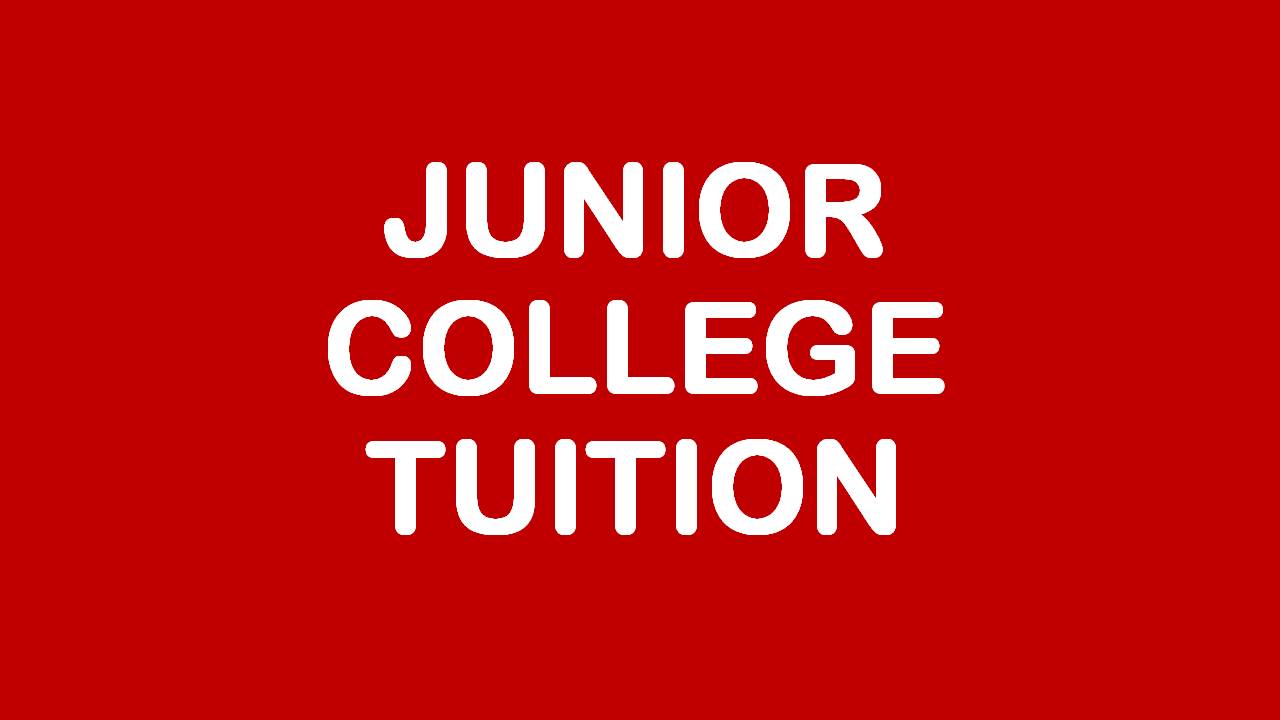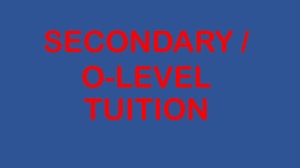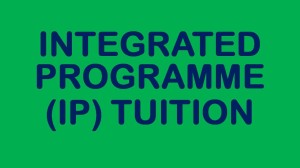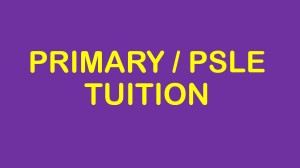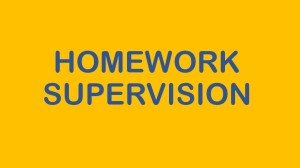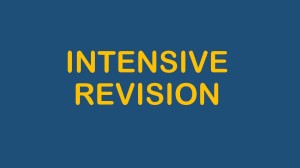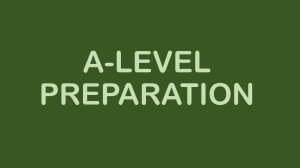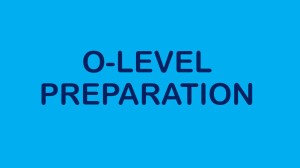Studying for exams is different from studying to learn. When exams are near, students often ask me, “Where do I begin? So much to cover.” Some ask, “Do I practise first or
read first?” Another common question is, “Do I do other schools’ prelim papers
first or the past GCE papers first?” Yet another common question is, “Which one
do I do first – topic by topic or year by year?”
Now, these are all valid questions and it is not surprising that many students are confused
and end up selecting the wrong strategies for their exams. Here I will attempt
to answer the most common questions I have encountered on the art of studying
for exams so that you can decide which strategies will work for you. Bear in
mind that studying for a national exam (eg. ‘O’ and ‘A’ levels) is DIFFERENT
from studying for your own school’s preliminary exam.
Q1. “When should I begin my revision for an exam?”
A good time to begin is about 3 months before the actual paper itself. This is from my own
personal, successful experience, although it can vary slightly from person to person. The logic behind it is – if you start any earlier, chances are, you will forget some of what you have revised or you will run out of energy or enthusiasm when the exam is near; if you were to start any later, the most likely result is that you will not have enough time to do a complete and effective revision.
Q2. “Where do I begin?
Begin with your weakest topic first. Read worked examples to understand it and then try
doing some simple questions before moving on to the harder ones. If you can’t identify your weak topics, try doing a past year paper and whichever questions you can’t answer smoothly, then the topics behind those questions are your weak ones. If you have been paying attention in class and doing your homework, at most 30% of the syllabus will be your weaker topics. That’s why performing students who do not overcome their weak areas will at most get a B grade as they have mastered less than 70% of the syllabus (factoring in careless mistakes as well).
Q3. “Do I practise first or read first?”
If you have near-zero knowledge of a topic, you have no choice but to read the theories and
worked examples first. For many of your topics however, you can start
practising solving the problems first and read as you go along. But less than
two days before the actual exam, you should just be reading (formulas and
worked examples) and NOT BE DOING ANY PROBLEMS AT ALL because if you do, your
mind would not have enough rest before the exam and you’ll have a high chance
of getting a mental ‘blackout’ during the exam, as had happened to some of my
students in the past who did not heed my advice.
Q4. “Which one do I do first – topic by topic or year by year?”
If the exam is more than one month away, do topical exercises to gain content and
procedural mastery. When the exam is near, do the yearly papers with actual
timing constraints to get a good gauge of your readiness for the actual exam.
Remember that for any important event or competition, there should always be a
“full-dress” rehearsal on the actual ground itself.
Q5. “Do I do other schools’ prelim papers first or the past PSLE/GCE papers first?”
Prelim exams are normally more difficult than the national exams. So if you are preparing
for the former, do the other schools’ prelim papers first, else you can start
on the “10-years” or “5-years” series of past PSLE/GCE papers.
Q6. “How do I know if I have covered all the important stuff for the exam?”
The best way to do this is to compare your own knowledge of the subject with the exam
syllabus itself, point by point. So if the syllabus says “include change of
base of logarithms”, you MAKE SURE that you are able to solve questions
involving the change of base of logarithms. Do not enter the exam room with
gaps in your knowledge base or wishing that certain types of questions are not
asked in the exam. Students are often heard saying, “I hope this will not come
out (in the exam).” If you are in this category of students, chances are, you
will not be getting a distinction for that paper.
Q7. “I normally cannot complete the paper. How can I do the questions faster?”
There are several reasons why a student cannot complete a paper in the time allotted: (1)
Too many careless mistakes, so the need to re-do and re-do several questions;
(2) Being unsure of how to proceed with a number of questions, so time is
wasted thinking about how to start doing them; (3) Spending too much time on a
particular difficult question, so later but easier questions are left undone or
poorly done and (4) Being too cautious and over-thinking, so instead of
confidently working out the solution step by step, the student is still
wondering whether the question can be done.
To overcome the problem in (1), please read my answer to Q8 below. For (2), it means that
you are not familiar with the concepts and problem-solving procedures of some
topics. So you’d have to revise these topics in detail, reading worked examples
and doing lots of practice on related questions of increasing difficulty. For
(3), you must adopt time management procedures, like moving on to the next
question if you have been stuck at the current one for longer than its allotted
time. To know the maximum time you can take to solve a question, divide the
duration of the paper by the maximum marks for that paper (this gives you the
number of minutes allocated to earn each mark) and multiply it by the maximum
marks possible for that question. For (4), you need to develop confidence in
problem-solving by doing more practice so that your solution steps become
automatic and not something that you try to work out mentally and then making a
premature judgment that some information is missing or that the solution steps
will reach a dead end.
Q8. “I always make a lot of careless mistakes. How can I reduce my tendency to make careless mistakes?”
The careless mistake that will cost you the most marks is NOT READING THE QUESTION CAREFULLY. This point has been highlighted in the Examiners’ Reports year after year. Thus you MUST PAY ATTENTION TO THE DETAILS when you are reading a question. Highlight the keywords and check them again WHILE DOING your working or answers. One can never be totally free of careless mistakes in exams. However, you’d have noticed that mistakes done at the start of your attempted answer will cost you many more marks than ones done at the end of your working. So an important habit is to double-check the first two lines of your working. Another good habit is to check whether the answer fits the question, and whether the answer is plausible (for eg, if x is the number of sides of a polygon, x cannot be negative or a
non-whole number).
Q9. “I can’t remember formulas. What can I do to memorize them?”
I’m not an expert on memorization techniques. One good way I know is to write out the formulae and procedures in a small notebook and bring it with you all the time if possible. Another obvious way is to do math almost every day. If you are a
right-brainer, then draw mind maps or concept maps to link all the theory
together. YOU WILL REMEMBER WHAT YOU WANT TO REMEMBER. Remember this ok. What did I just say? : )
If you need more advice (or even tuition) on Math, A.Math, Physics or Chemistry or Combined Science, do whatsapp me at 97860411.
Rgds,
Ilyasa
An NIE-trained Teacher, Mr Ilyasa has been coaching students in O-Level & IP Chemistry, Physics and Math for more than 12 years. An alumnus of Raffles Institution, Mr Ilyasa holds a a Bachelor of Science degree from the NUS as well as a Master of Education (Curriculum & Teaching) degree from the National Institute of Education. Mr Ilyasa’s thinking and metacognitive approaches to problem solving has helped many students of varying abilities to excel in Math and the Sciences. He has coached students from many different schools and streams, including IP, SAP, and IB.
_______________________________________
TUITION CLASSES:
_______________________________________________________________
EDUCATIONAL SERVICES:
______________________________________________________________
By EX-MOE TEACHERS & EXPERIENCED TUTORS
@ BLK 644, BUKIT BATOK CENTRAL, #01-68. S(650644).
CALL 65694897 OR SMS 87762711.
_____________________________________________________________
SINGAPORE LEARNER
Singapore Learner provides Group Tuition, Individual Tuition, Intensive Revision, Enrichment Workshops, Headstart Classes and Crash Courses at the Primary, Secondary and Junior College levels in the areas of Math, Pure Physics, Pure Chemistry, Science, Economics, and General Paper for the Singapore A-Levels, O-Levels and PSLE.
